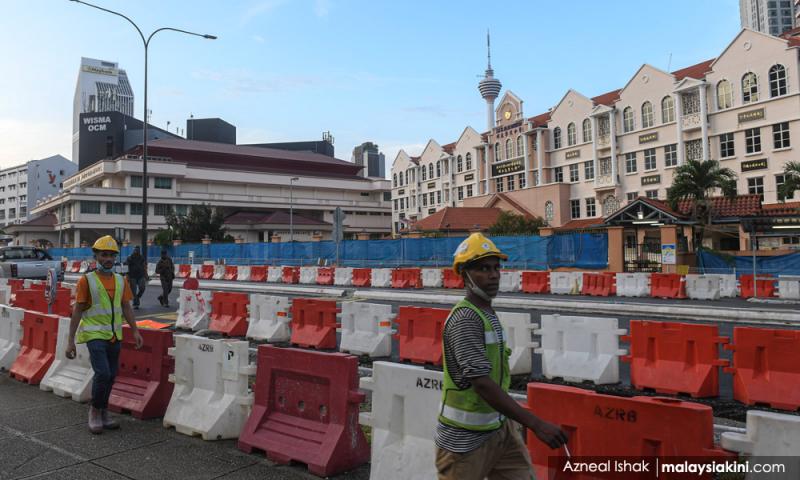LETTER | How migrant workers’ life developed in Malaysia
LETTER | There is a proverb that says, "One cannot progress in life suddenly; one needs a strong foundation or place to progress”.
The same holds true for migrant workers who travel to Malaysia for employment.
Malaysia is currently home to at least two million migrant workers that comprise around 15 percent of the total workforce, said Jarud Romadan, a researcher at Khazanah Research Institute.
Migrant workers here mostly come from Indonesia, Bangladesh, Nepal, Myanmar, and other Asian countries in smaller numbers from India, Cambodia and Laos.
They engage in various industries including manufacturing, plantation, agriculture, services (hospitality and security) and domestic work.
In recent years, the government has been talking about reducing its dependence on migrant workers.
In the most recent two Malaysia Plans — the 11th and 12th — the government has placed a threshold to lower the number of foreign workers to not more than 15 percent of the workforce.
However, many are of the opinion that migrant workers are still necessary for our country to support the expansion of our industries and accelerate economic recovery.
How do migrant workers settle down once they arrive in Malaysia? First, migrant workers with work permits who married Malaysian citizens and registered their marriages in Malaysia - and become legal foreign spouses. After marriage, the application for legal residence status as a spouse becomes repetitive, incremental and time-consuming.
After a few years, the foreign spouses we interviewed usually manage to obtain annual social visit passes but very seldom get permanent residence.
Problems facing migrant workers
The residence passes that they hold do not allow them to work or conduct business in this country. However, most of them are either employed or involved in some informal businesses - or conducting business activities in companies registered in the names of their Malaysian spouses.
Second, migrants from Malaysia transfer a portion of their earnings—either in the form of money or goods—home to support their families in their homelands.
They pay off their debt and purchase property and land in their own country. When their employment contract ends, they return home and continue with their lives happily with the money they had earned.
Essentially, migrant workers get many benefits from working in Malaysia. However, our country and employers should take steps to recruit locals in industries that suffer from a labour shortage.
All things considered, the entry of migrant workers has certainly resulted in a positive impact towards Malaysia’s economy.
Migrant workers in Malaysia are undeniably needed for the growth and stability of our economy. Hence, the demand for migrant workers is understandable as there is an acute shortage of manpower in sectors that contribute most to Malaysia’s economy.
The views expressed here are those of the author/contributor and do not necessarily represent the views of Malaysiakini.
RM12.50 / month
- Unlimited access to award-winning journalism
- Comment and share your opinions on all our articles
- Gift interesting stories to your friends
- Tax deductable
